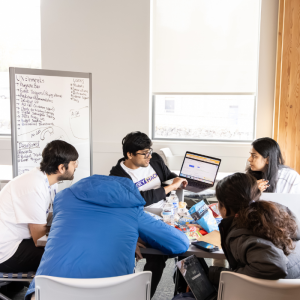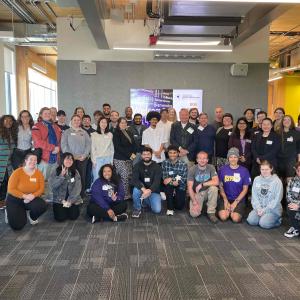2022-23 budget deficit requires continued expense reduction
I write with important information about the UW Tacoma 2022-23 budget.
As you know, higher education has experienced deep and lasting impacts from the COVID-19 pandemic, and UW Tacoma is no exception.
In the 2021-22 fiscal year, we acted early and were able to avoid adding to our deficit. This has occurred thanks to fiscal prudence by everyone, sweeping budget lines associated with vacant staff positions, and a $1 million Higher Education Emergency Relief Fund (HEERF) allocation from UW in Seattle.
This is good news for the last fiscal year; however, we still have ongoing budget issues due to the underlying gap between revenues and expenses.
For the 2022-23 fiscal year, we must tackle that same $5 million gap. On top of that, the Office of Planning & Budget on the Seattle campus is anticipating no enrollment growth for UW Tacoma this autumn, which means we must align our budget to expect no growth in our largest single source of revenue – tuition. Additionally, as is typical, salary increases were only partially funded by the legislature, and we must make up the difference.
These developments mean that we start the new fiscal year with a revenue gap of approximately $9.4 million. We have been, and will continue early in FY23, to ensure on-going expenses are met by using reserve funds. This is not a sustainable practice moving forward.
Because of the deficit situation, the UW Office of Planning and Budget will engage in enhanced monitoring of our budget and finances. This requires that we develop a formal strategy (a deficit resolution plan) to reduce expenses with the goal of reaching a sustainable, stable budget by the 2023-24 fiscal year.
This will not be an easy task. Here are some of the ways we will address this:
- We must continue a transparent budget process that ensures students, faculty, staff and external partners understand the campus’s fiscal position and the plan for addressing it.
- We will evaluate what reductions we can make to programs and activities that are either underperforming or not sustainable over the medium to long term.
- UW Tacoma currently uses an incremental budget process that assumes continual growth and a higher level of state support than we currently receive. We will continue to look at a new budget model that better aligns with the Seattle campus’s Activity Based Budget (ABB) model and UW Bothell’s Responsibility Centered Management (RCM), with a focus on activities that facilitate growth while meeting market demand signals.
- Staff and faculty vacancies will not be filled by default. They will be reviewed on individual merits on a case-by-case determination.
- Deans and Vice Chancellors will need to pre-approve travel on a case-by-case basis.
- An enrollment management plan will be developed to include tuition revenue goals and fiscal health targets.
Please note, as always, when we are addressing budget shortfalls, staffing cuts or reductions will be the last options we consider.
We are also looking for your ideas and solutions on reducing unnecessary expenditures, maximizing efficiencies in current operations and developing new revenue sources. If you have an idea to share, please contact Joe Lawless in the Chancellor’s Office.
I want to thank each of you for your continued commitment to our students and our vital mission to create a sustainable urban-serving university, with deep commitment to access and excellence. I want to stress that, although serious, our budget situation is not desperate. I remain strongly committed, as I hope you do, to our mission and goal of working collaboratively to grow UW Tacoma to fulfill the important role public higher education must play in bringing about an equitable and just world.
As we continue to work together, we can get through this difficult situation and come out stronger and better able to serve our students and our community.



